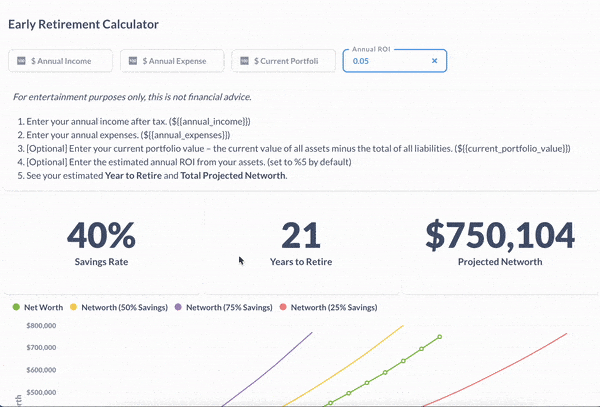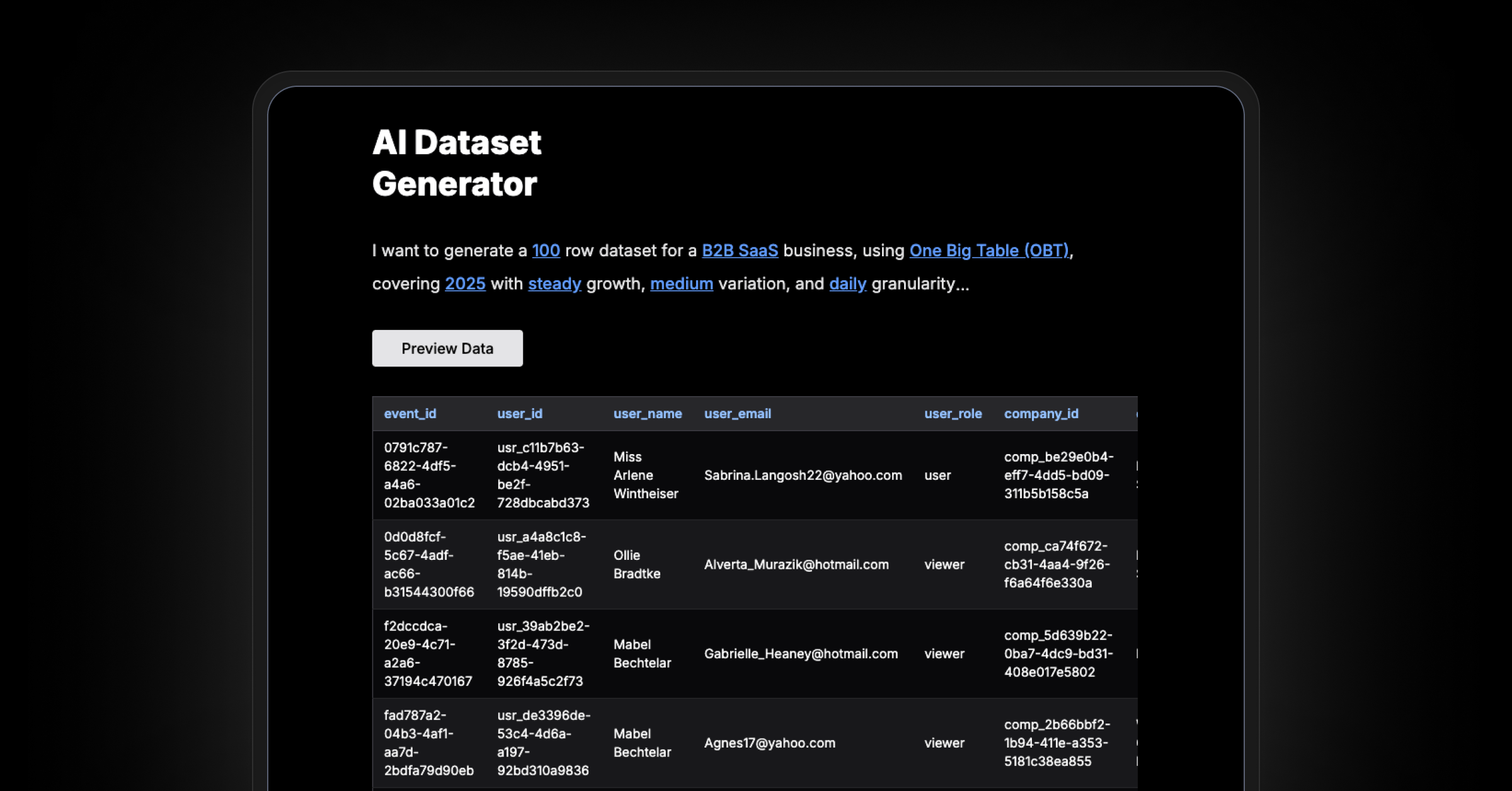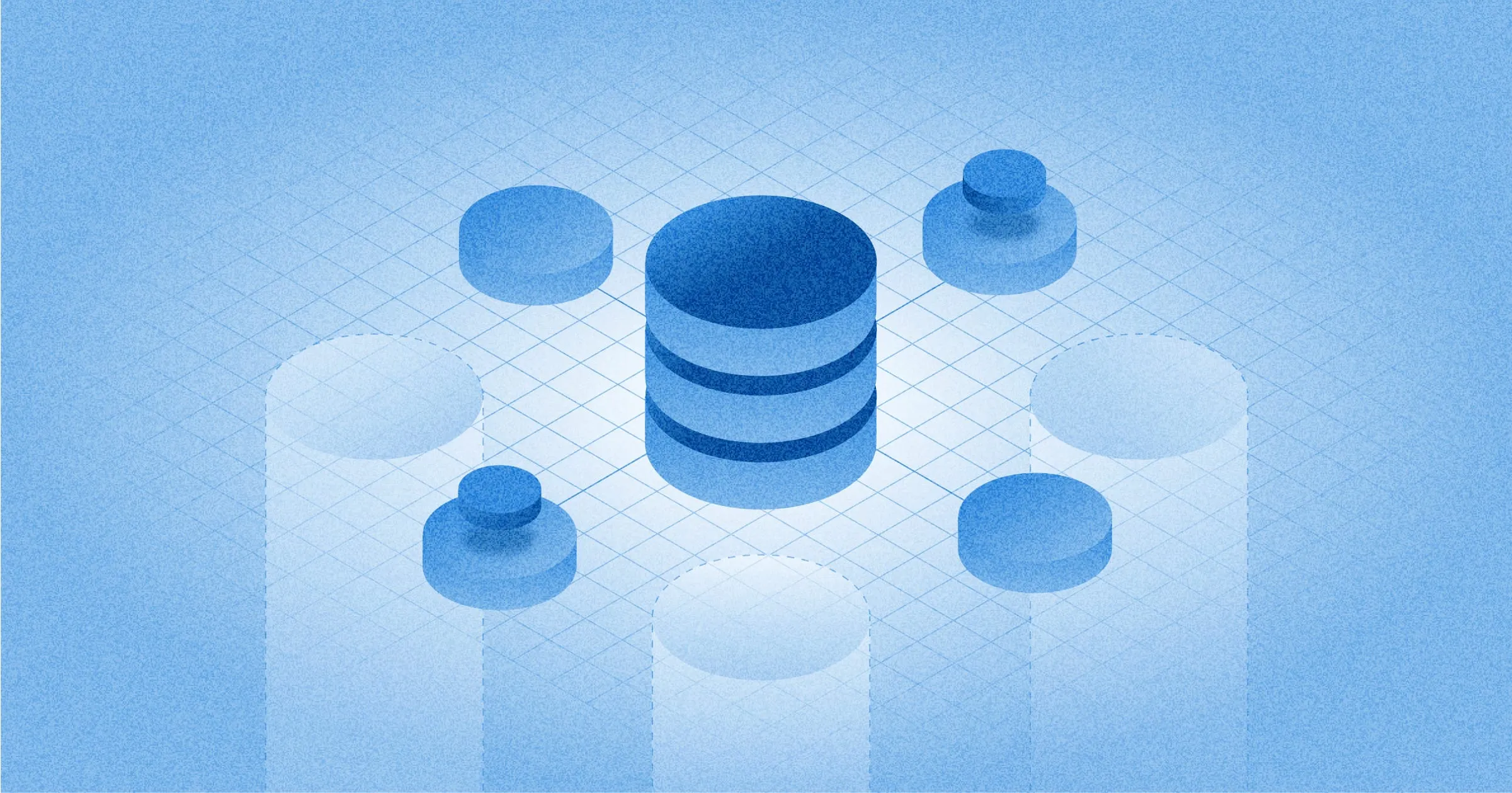‧
5 min read
Want to retire early? Save more money
The Metabase Team
‧ 5 min read

Share this article
The FIRE (Financial Independence Retire Early) movement has been a growing trend in recent years. While there are plenty of FIRE calculators to help you figure out how long it would take you to retire early, we were curious to see how geography affected those calculations. Read about our exploration below (or skip right to the FIRE calculator).
We were able to gather open datasets on the internet and pulled them into Metabase to help us find the answers.
Years to Retire by Country — The y-axis shows the number of years the average citizens of these countries can reach FIRE. The bubble size represents the projected networth in $.
Observations
- According to the latest personal savings rate statistics, people in Eastern Asian countries like Japan and South Korea are able to reach FIRE the fastest (in 14 years for Japan, and in 25 years for South Korea). Both nations boast the highest savings rate.
- Despite having one of the highest average incomes in the world, North Americans will take the longest to reach FIRE (55 years for Canada and 65 years for the US).
- While some nations have better pension plans for their citizens (especially in Northern Europe and Australia), we weren’t able to find any correlation between years to retire vs. the quality of the pension plans (higher pension index values are better). We’d assumed that people in countries with better pensions plans would have lower savings rates (the thinking here being that, because they could rely on their pensions, they could afford a higher spending rate), but the data didn’t support this assumption.
Years to Retire vs Pension Index Value. There was no correlation between Years to Retire and Pension Index Value.
Calculate how long it’ll take you to retire early

The calculations above are based on national average. To achieve FIRE faster, you should shoot for better than the average. This calculator can help you estimate how long it would take you to FIRE.
Here’s the SQL we used
WITH savings_rate_income_by_country
AS (SELECT s.country
AS
country
,
s.savings_rate
AS savings_rate,
i.average_monthly_net_salary_after_tax_
AS
net_monthly_salary,
i.average_monthly_net_salary_after_tax_ * 12
AS
annual_income,
i.average_monthly_net_salary_after_tax_ * 12 * ( 1 -
s.savings_rate )
AS
annual_expense
FROM random_datasets.income_savings_rate_oecd_personal_savings_rate s
INNER JOIN
random_datasets.income_savings_rate_numbeo_monthly_salary
i
ON s.country = i.country_name),
years_elapsed
AS (SELECT country,
savings_rate,
annual_income,
annual_expense,
Generate_series(1, 100) AS year,
annual_income - annual_expense AS annual_contribution
FROM savings_rate_income_by_country),
compound_interest
AS (SELECT a.*,
b.annual_contribution * Power(( 1 + 0.05 ), a.year - b.year + 1)
-
b.annual_contribution AS compound_interest
FROM years_elapsed a
LEFT JOIN years_elapsed b
ON a.year >= b.year
AND a.country = b.country
ORDER BY a.year),
yoy_networth_table
AS (SELECT country,
savings_rate,
annual_income,
annual_expense,
year,
annual_contribution,
Sum(annual_contribution) AS total_contribution,
Sum(compound_interest) AS total_interest,
Sum(annual_contribution)
+ Sum(compound_interest) AS networth
FROM compound_interest
GROUP BY country,
savings_rate,
annual_income,
annual_expense,
year,
annual_contribution
ORDER BY year)
SELECT c.region AS "Region",
y.country AS "Country",
p.overall_pension_index_value AS "Pension Index Value",
y.savings_rate AS "Savings Rate",
y.annual_income AS "Annual Income",
y.annual_expense AS "Annual Expenses",
Min(y.year) AS "Years to Retire",
Min(y.networth) AS "Projected Net Worth"
FROM yoy_networth_table y
LEFT JOIN random_datasets.countries_with_regional_codes c
ON c.NAME = y.country
LEFT JOIN random_datasets.income_savings_rate_global_pension_index_2021 p
ON p.country = y.country
WHERE y.networth * 0.04 >= y.annual_expense
GROUP BY c.region,
y.country,
p.overall_pension_index_value,
y.savings_rate,
y.annual_income,
y.annual_expense
View the table for Years to retire by country.




